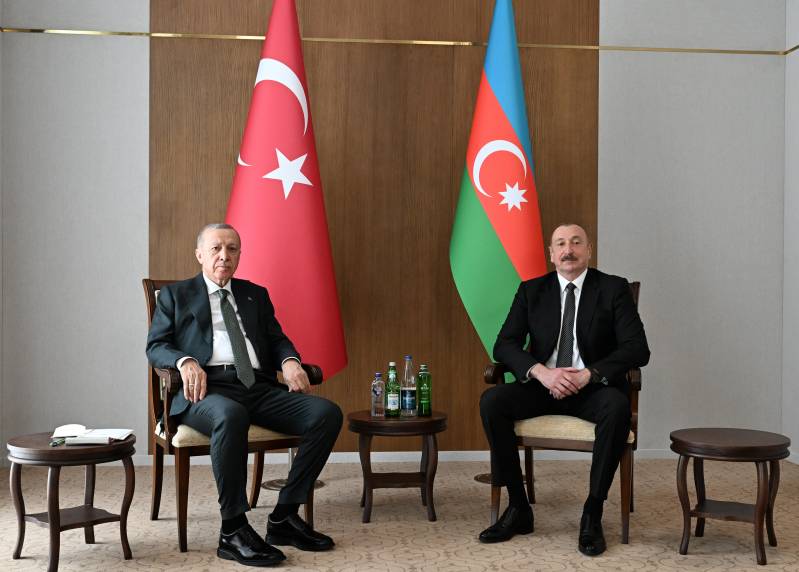11:50
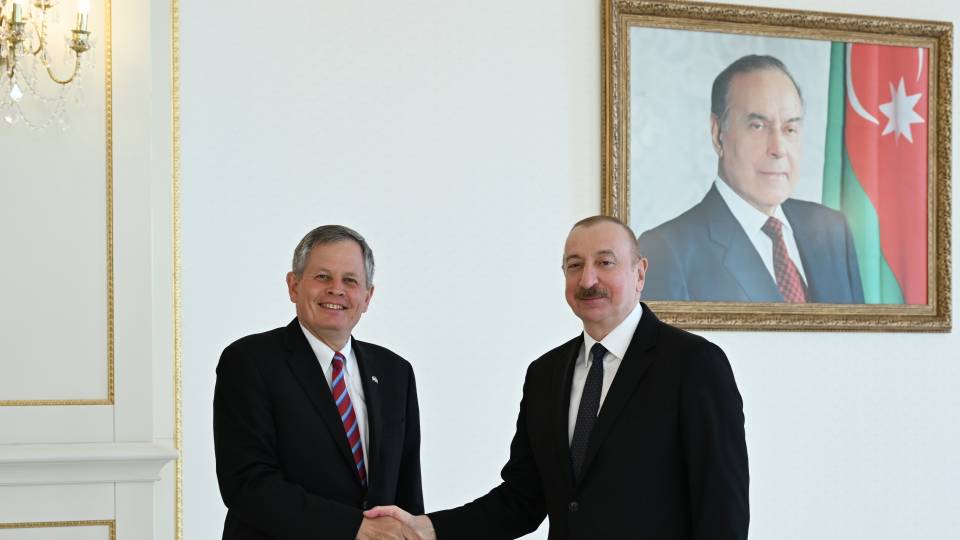
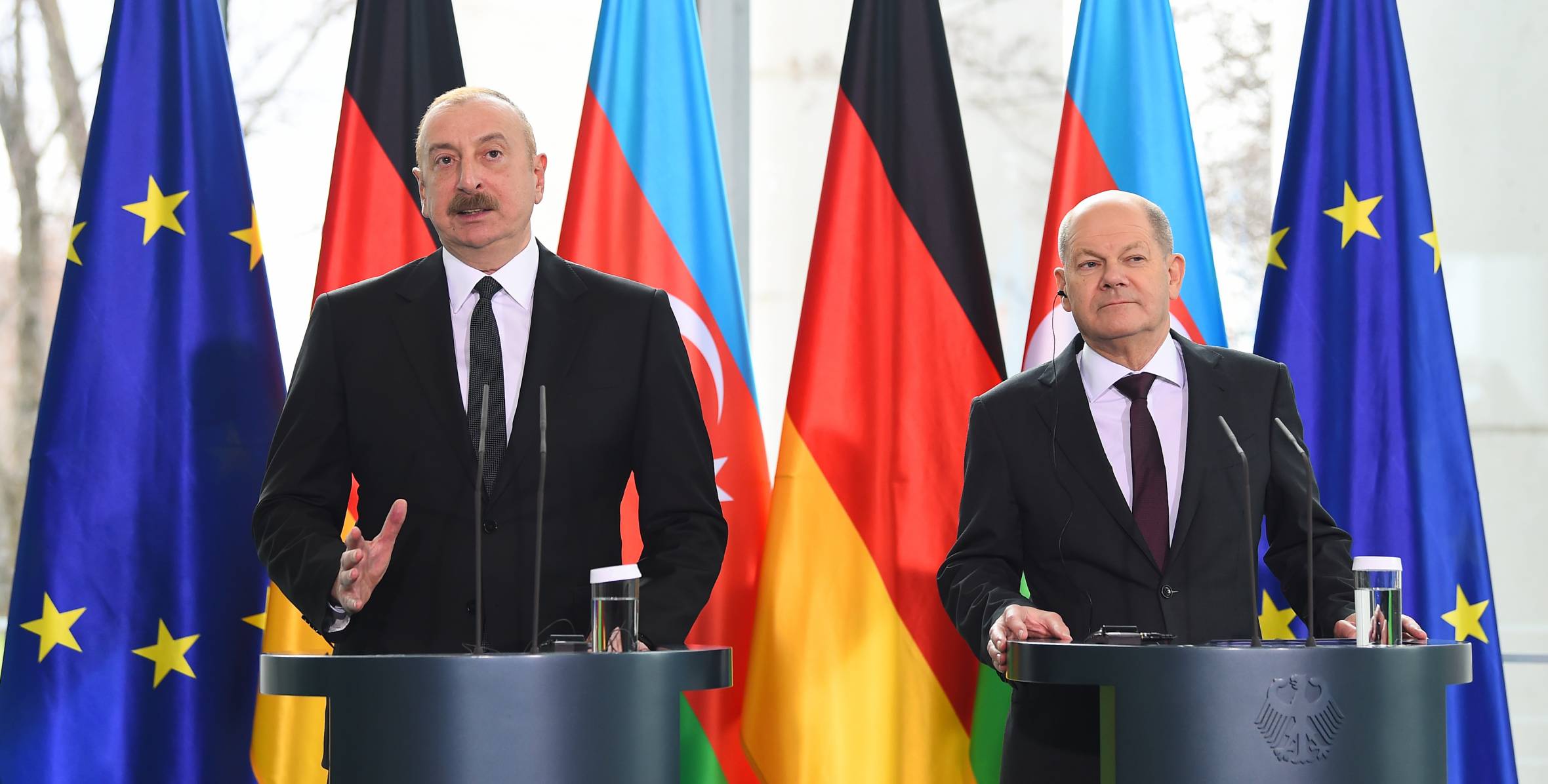
President of the Republic of Azerbaijan Ilham Aliyev and Chancellor of the Federal Republic of Germany Olaf Scholz have held a joint press conference.
German Chancellor Olaf Scholz made the statement first.
Statement by Chancellor Olaf Scholz
- Dear ladies and gentlemen.
Let me warmly welcome the President of Azerbaijan, Mr. Ilham Aliyev, to Berlin today. We have just had an excellent exchange of ideas on deepening our bilateral cooperation. Last year, we also celebrated the 30th anniversary of establishing diplomatic relations between our countries. Azerbaijan and the European Union want to cooperate more closely within the framework of the Eastern Partnership program. Considering our bilateral economic relations, we discussed how exactly this is possible.
Azerbaijan is becoming an increasingly important partner for Germany and the European Union. This country has great potential for energy supply to both Germany and the European Union, and Azerbaijan can contribute. At the same time, renewable energy is also a subject of our cooperation.
Mr. President Aliyev and I have also exchanged views on Russia's attack on Ukraine. We have also exchanged views on the impact of this attack and this war on Azerbaijan and the South Caucasus. I have clearly stated our position. In our opinion, Russia's war of aggression clearly violates international law. This war of aggression by Russia marks the beginning of a new era, so to speak, from a geopolitical point of view.
It is important for us that the long-term conflict between Azerbaijan and Armenia should be resolved peacefully. Frankly speaking, Germany is a bit worried about the unstable situation on the Armenia-Azerbaijan border. Of course, there is a danger of tensions rising there, and the developments of the last months and weeks have made this quite evident. We wish this conflict finds a long-term and acceptable solution on the spot and in a short time. When we say a peaceful solution, we mean that the territorial integrity of both Azerbaijan and Armenia should be ensured, of course. At the same time, the human rights and freedoms of the people of both countries must be protected and aligned with international law. Of course, Germany is ready to provide support here. As you may know, there is a civilian mission of the European Union in Armenia. Germany supports this mission, and the head of this mission represents Germany.
Mr. Aliyev and I are of the same opinion that this conflict should be resolved as soon as possible. Azerbaijan and Germany are members of the Council of Europe. Through this membership, we committed ourselves to protecting people's rights, democracy and the rule of law. We believe that a vibrant civil society is an integral part of democracy because every society can only benefit from a vibrant civil society.
Dear ladies and gentlemen, I was pleased to have such a positive conversation in these difficult times. We have decided to stay in close contact with Mr. President and continue our cooperation. Please, Mr. President, the floor is yours.
x x x
Then, the President of Azerbaijan made the statement.
Statement by President Ilham Aliyev
- Thank you, Mr. Chancellor.
Dear ladies and gentlemen.
First of all, Mr. Chancellor, I want to thank you for the invitation and hospitality. The talks we held during this visit show again that Germany-Azerbaijan relations are at a high level. There is a constant political dialogue, and I am sure my visit will significantly contribute to our bilateral relations.
As you mentioned, many issues were discussed today, including the European Union and Azerbaijan relations. Significant steps are being taken in this direction. In particular, the Memorandum of Understanding on a strategic partnership in energy security signed between the European Union and Azerbaijan last year shows our intentions. The speedy implementation of the Memorandum and its timely execution once again shows that Azerbaijan is a reliable partner for Europe.
We are increasing our gas exports to Europe. In 2021, we exported 8 billion cubic meters of gas to Europe; this year, the figure will reach nearly 12 billion cubic meters. This is half of our total exports, and we would like to expand our export geography in Europe in the coming years.
I had a meeting with about 30 German business people yesterday. During the two-hour meeting, I witnessed the enormous attention the German business community is paying to Azerbaijan, Azerbaijan's economy and opportunities. In addition, there are ample opportunities for joint development and exploitation of renewable energy, and we have exchanged views on this today. Azerbaijan has immense renewable energy potential. The wind energy potential of the Caspian Sea alone is equal to 157 gigawatts, and several contracts have already been signed. I am sure that Azerbaijan will export not only natural gas but also green energy to Europe in the future.
Overall, business opportunities are extensive. I have invited German business people to visit Azerbaijan and closely explore future business opportunities through contacts with our relevant agencies.
As Mr. Chancellor said, we have also discussed regional security issues. I stated Azerbaijan's position regarding the Armenia-Azerbaijan normalization process. I want German media representatives to know that Azerbaijani lands were under Armenian occupation for nearly 30 years. As a result of this occupation and ethnic cleansing, nearly 20 percent of our lands were occupied, and a million Azerbaijanis were expelled from their native lands by Armenia and became refugees. Two and a half years ago, as a result of the Patriotic War, we restored our dignity, territorial integrity and rights on the battlefield, defeated Armenia and forced it to vacate our lands. Thus, Armenia, which did not implement four resolutions of the UN Security Council for 28 years, had to come to terms with its defeat in a matter of 44 days.
I must also state that, unfortunately, the leadership of Armenia, which used to see Karabakh as Armenia, missed its chance for peace. In 2019, the incumbent prime minister of Armenia said, “Karabakh is Armenia, full stop.” That dealt the biggest blow to the peace talks. During the 44-day Patriotic War, we proved that Karabakh is Azerbaijan, exclamation mark! We put this exclamation mark in Shusha on November 8, 2020.
Now is the time for peace. We have proposed peace to Armenia and offered a peace treaty based on five principles. I do hope that Armenia does not miss this chance and era of peace and cooperation finally begins in the South Caucasus. Thank you.
x x x
Then questions from media representatives were answered.
Host: If there are any questions, you can ask them now.
Nikol Konat from ARD television: I have a question for Mr. Chancellor about another topic. It is related to the American banking sector, the Silicon Valley Bank. From Germany's point of view, do you think our investments will be safe or not?
Chancellor Olaf Scholz: I think that if we look at the banking crisis of 2009, our current situation is better. We learned much from the previous crisis and are prepared for the current situation. So, I think there is no need to worry. Based on the reaction of the U.S., UK, and Germany, everything, the entire situation is being assessed, everything is under control, and there is an opportunity to take certain measures. So, there is no need to worry about Germany, I think.
Kamran Gasimov from REAL TV: Mr. Chancellor, I have a question for you. At the press conference held with the Prime Minister of Armenia on March 2, you stated that the conflict could be resolved based on the territorial integrity of Azerbaijan and Armenia and the right of Nagorno-Karabakh to self-determination and that these principles are the same for everyone. I question whether these principles can be applied to South Ossetia, Abkhazia, Donbas, and Transnistria territories? Thank you.
Chancellor Olaf Scholz: Thank you for your question. I can answer very simply. Let’s take an ongoing conflict. Let's take Russia's attempt to occupy a part of Ukraine. We will never allow that to happen; we disagree with that - the annexation of Zaporizhzhia, Luhansk, Kherson and other parts resulting from fake referendums, i.e., occupying them. We disagree with this, and we have clearly stated our position here that the UN Charter does not allow this; this action is against international law. At the same time, we clearly stated our position because we did not accept Nagorno-Karabakh as a republic, nor did we recognize Nagorno-Karabakh.
- Mr. President, my question is for you. You have provided information about gas exports to Europe and Germany. Could you possibly elaborate on the volumes? Let's say, how much gas can you send to Germany or Europe? What are your conditions? What are the conditions in your country? Should it be a long-term cooperation? I also have a question for the Federal Chancellor. Mr. Chancellor, what do you say: is Karabakh Azerbaijan? You have just said that you do not recognize Nagorno-Karabakh as a republic. Is Karabakh Azerbaijan?
President Ilham Aliyev: We have been exporting natural gas to Europe for over two years, increasing these volumes yearly. After the outbreak of the Russia-Ukraine War, we received requests from 10 European countries, at least ten countries. There were proposals to start gas supply to some countries or increase them to countries we already supply gas to. According to the Memorandum of Understanding signed with the European Union last year, we plan to deliver 20 billion cubic meters of natural gas to Europe by 2027. I should also note that our gas exports are not limited to Europe. At the same time, we export gas to Türkiye and Georgia, our biggest markets. Therefore, new contracts must be signed to deliver gas exports to Europe in the future.
Currently, Azerbaijan’s gas is delivered to Türkiye, Georgia, Bulgaria, Greece and Italy. It has also been delivered to Romania since this year. At the end of this year, we intend to supply the first gas to Hungary. We have started negotiations with the Albanian government to establish a gas supply network in Albania and enable gas exports to Albania in the future. At the same time, the Czech Republic, Montenegro, Bosnia and Herzegovina, Croatia and other countries are among the countries that have placed orders with us. Of course, the emerging interconnectors in Europe also play a critical role. The more interconnectors there are, the broader our gas export geography in Europe can be. Of course, long-term contracts should be signed. Because we know very well that there is a tendency to go green in Europe, and we are interested in long-term contracts. I do hope that we can reconcile these issues. At the same time, if we consider the investment in renewable energy in Azerbaijan, the natural gas currently used for electricity production can be exported to Europe, so our future exports could be more significant than we envisioned.
Chancellor Olaf Scholz: Thank you for the question.
Mr. President, thank you for the information provided. It is reassuring information, and the volumes Azerbaijan will export to Europe are essential for our future; our interests are the same. The development and construction of renewable energy infrastructure are in the interest of both sides. Of course, there is potential to export green energy from Azerbaijan. In this field, both medium and long-term cooperation is possible. We are interested in waste-free energy and can provide it together in this area.
Regarding the second question, I would like to note that Germany expressed its opinion at the international level back then by not recognizing Nagorno-Karabakh as a republic. In other words, we have expressed our position.
Fikrat Dolukhanov from Azerbaijan Public Television: Mr. Chancellor, I have a question for you. If we look at the statistics, we will see that in 2021, Germany's exports to Armenia amounted to 178 million euros. In 2022, this figure already reached 505 million euros. At the same time, although the European Union's exports to Armenia in 2021 amounted to 753 million euros, the figure reached 1.3 billion euros in 2022. An interesting fact is that Armenia's exports to Russia were 800 million dollars in 2021; in 2022, this number tripled to reach 2.4 billion dollars. Are these surprising figures being investigated in the European Union and Germany? Because these numbers show and prove Armenia's evasion of sanctions against Russia. Will this be investigated by Germany and the European Union, and in what form can Armenia be punished for this activity? Thank you very much.
Chancellor Olaf Scholz: Thank you for your question. Let me answer briefly. We have looked at various export-import figures from different countries in Germany and the European Union. Where are the increases noticeable? It is a standard routine of the European Union to look closely at every country in the world. In this regard, there are relevant offices that deal directly with this. We say this to everyone, and we say this in all bilateral negotiations – please be careful not to circumvent the sanctions. The President of the European Commission has also expressed this opinion openly. Thank you.
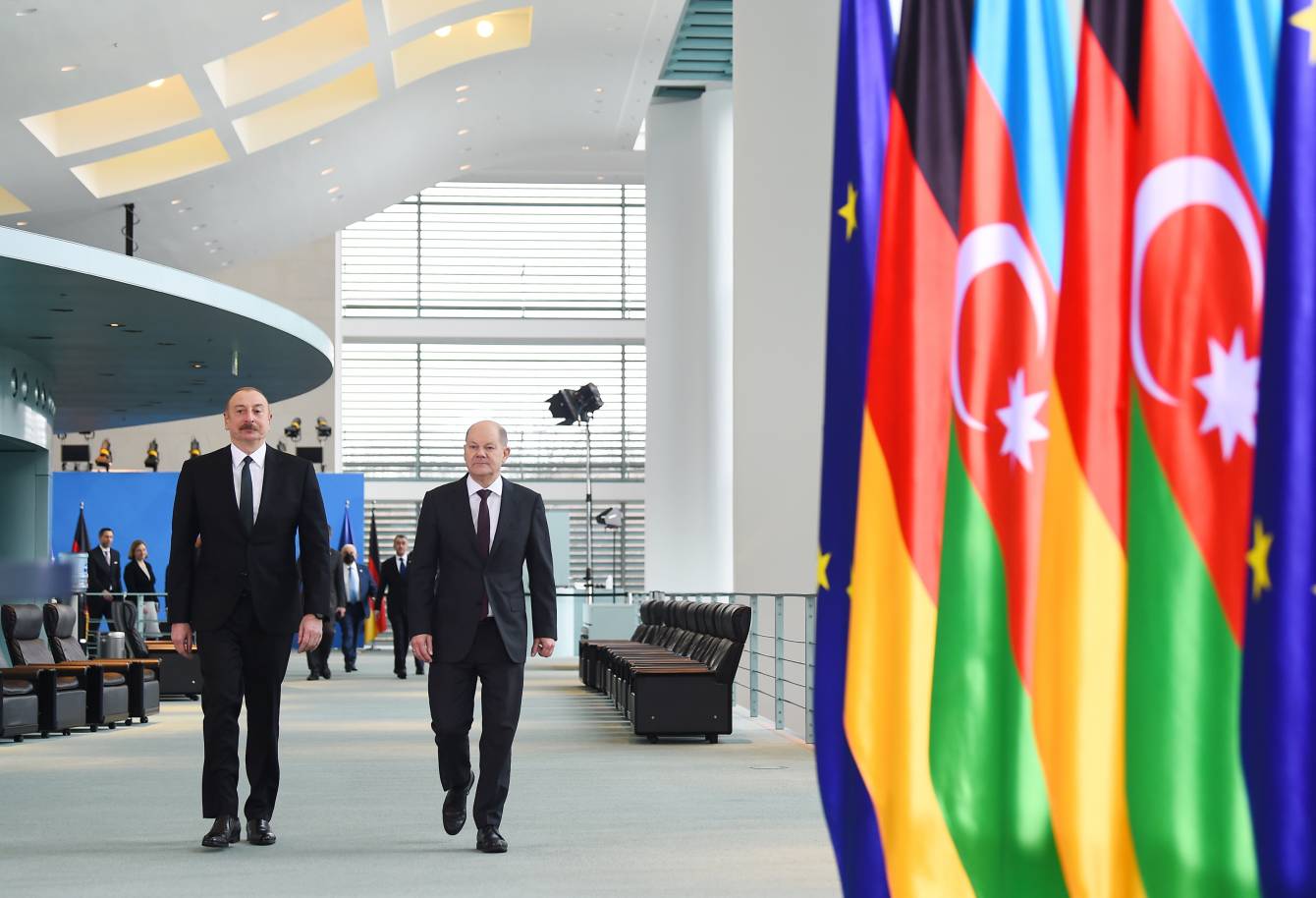
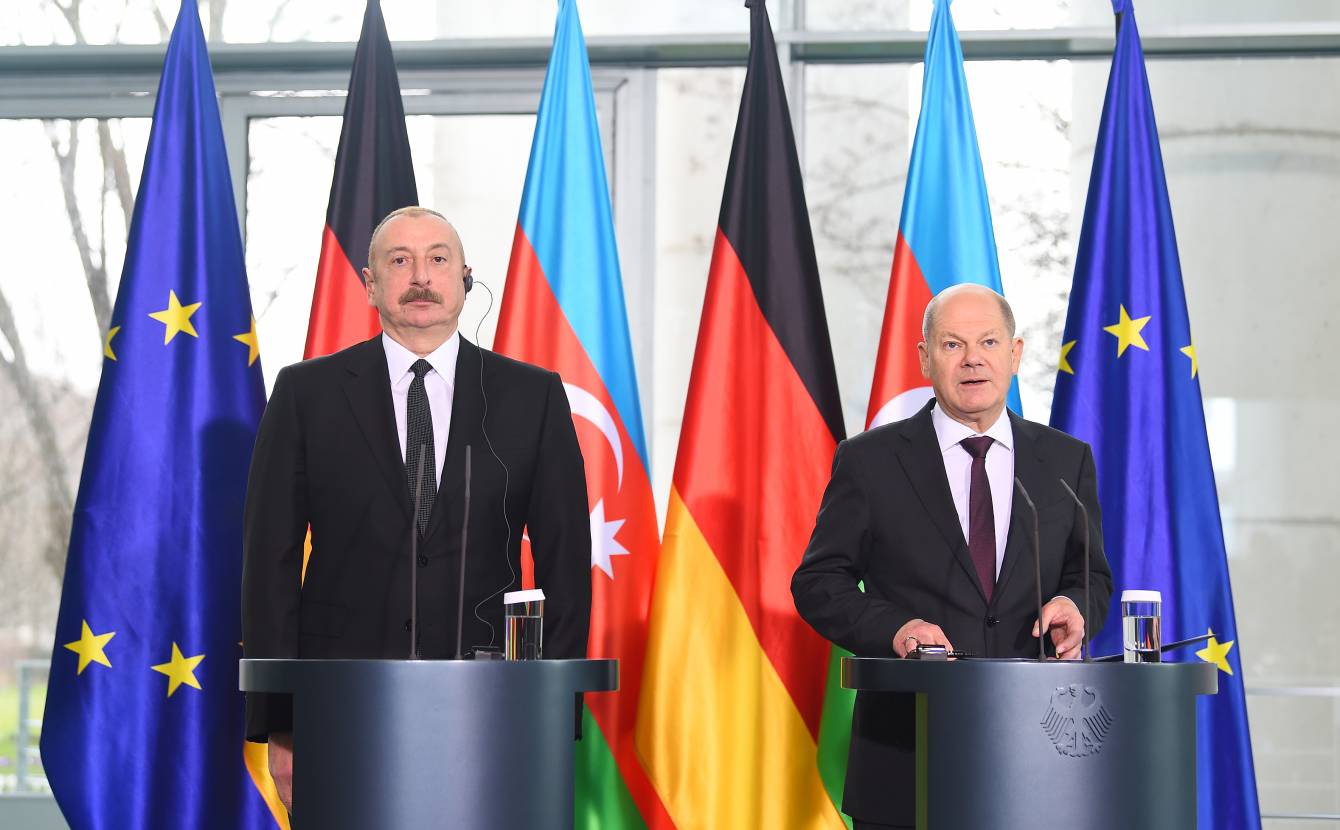
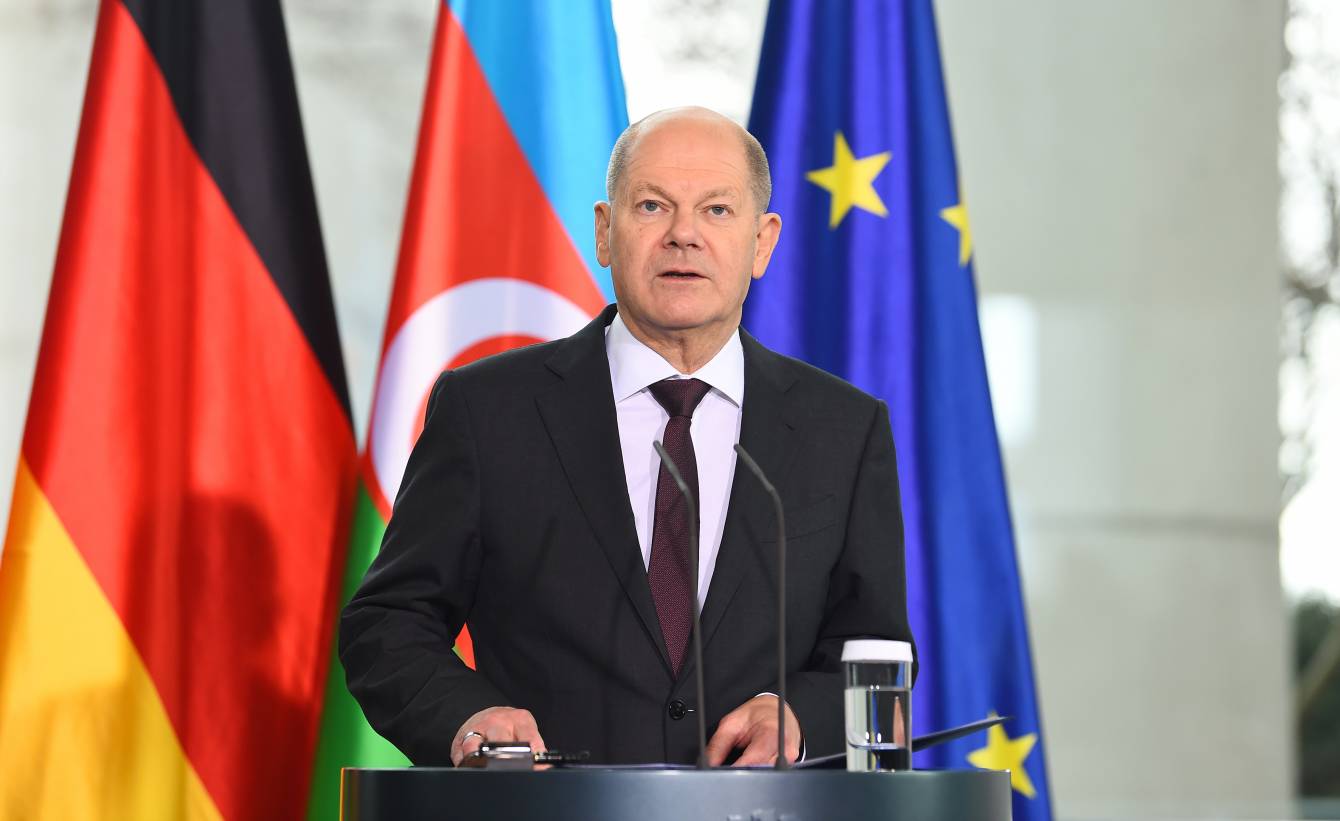
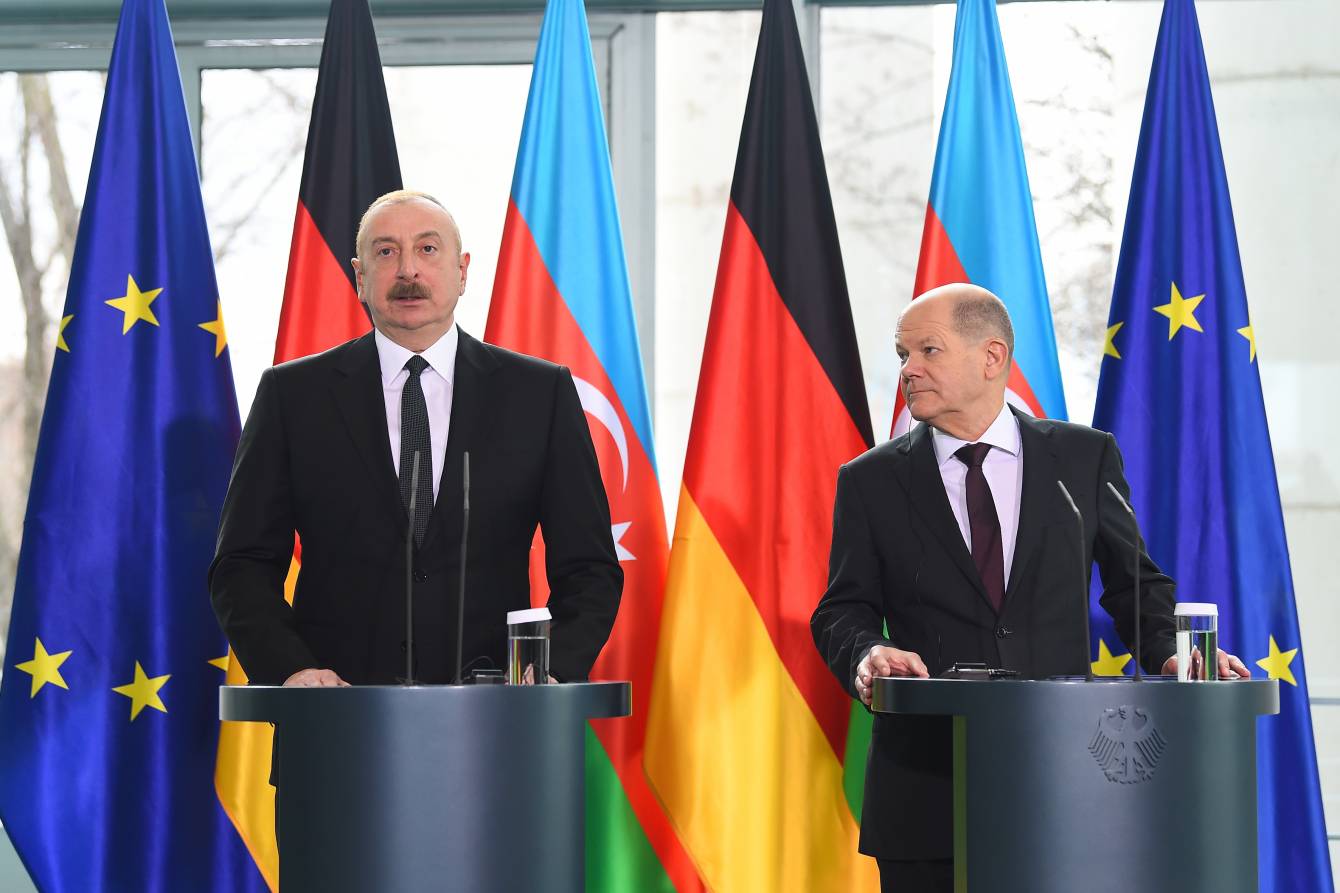
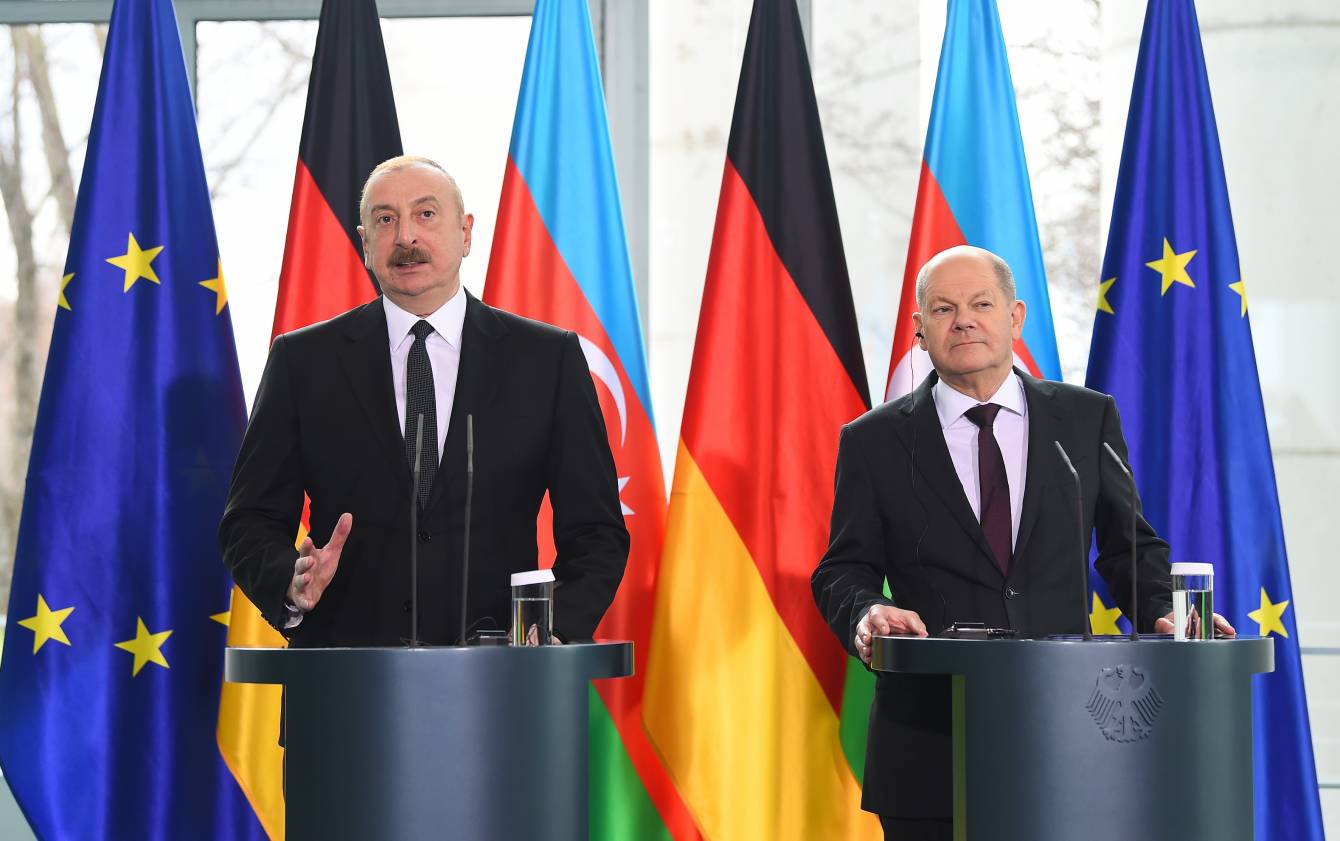
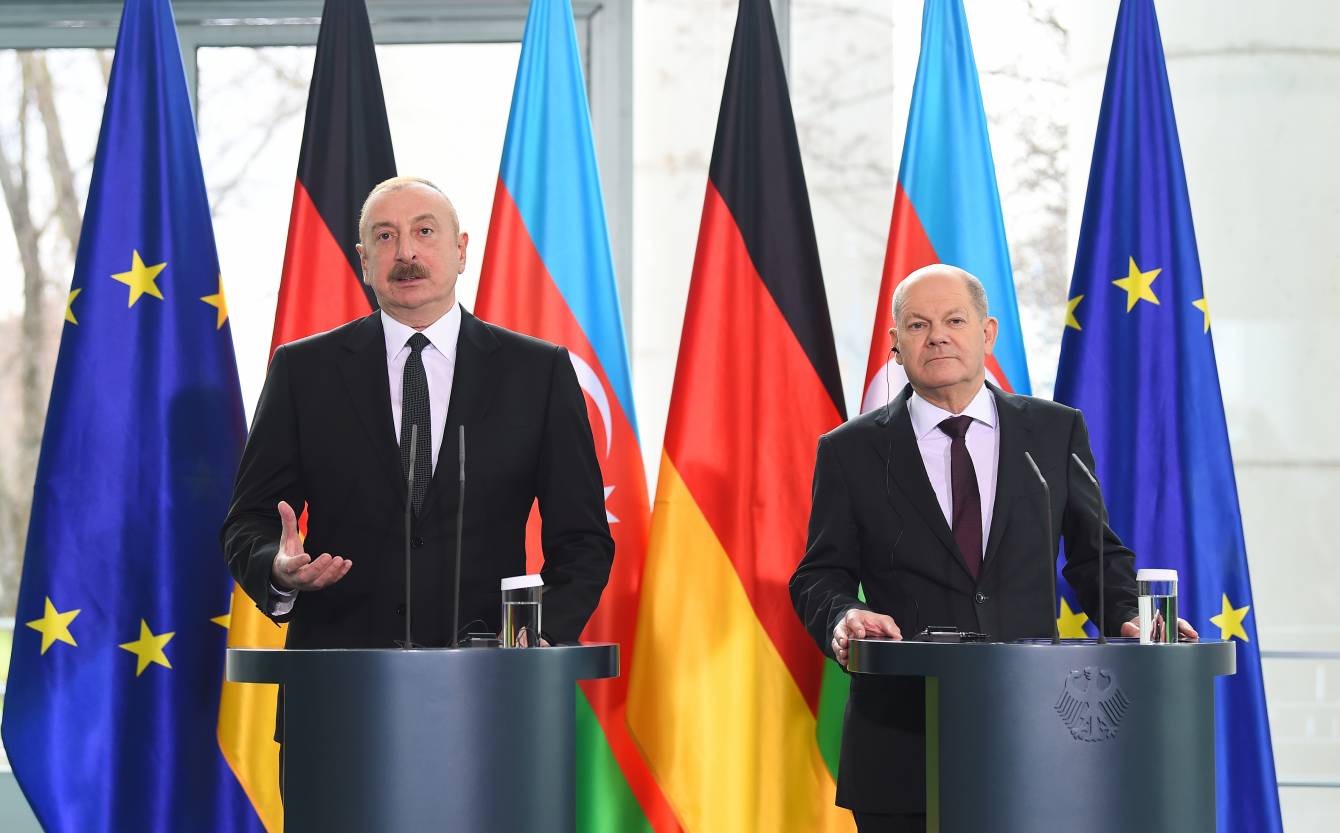
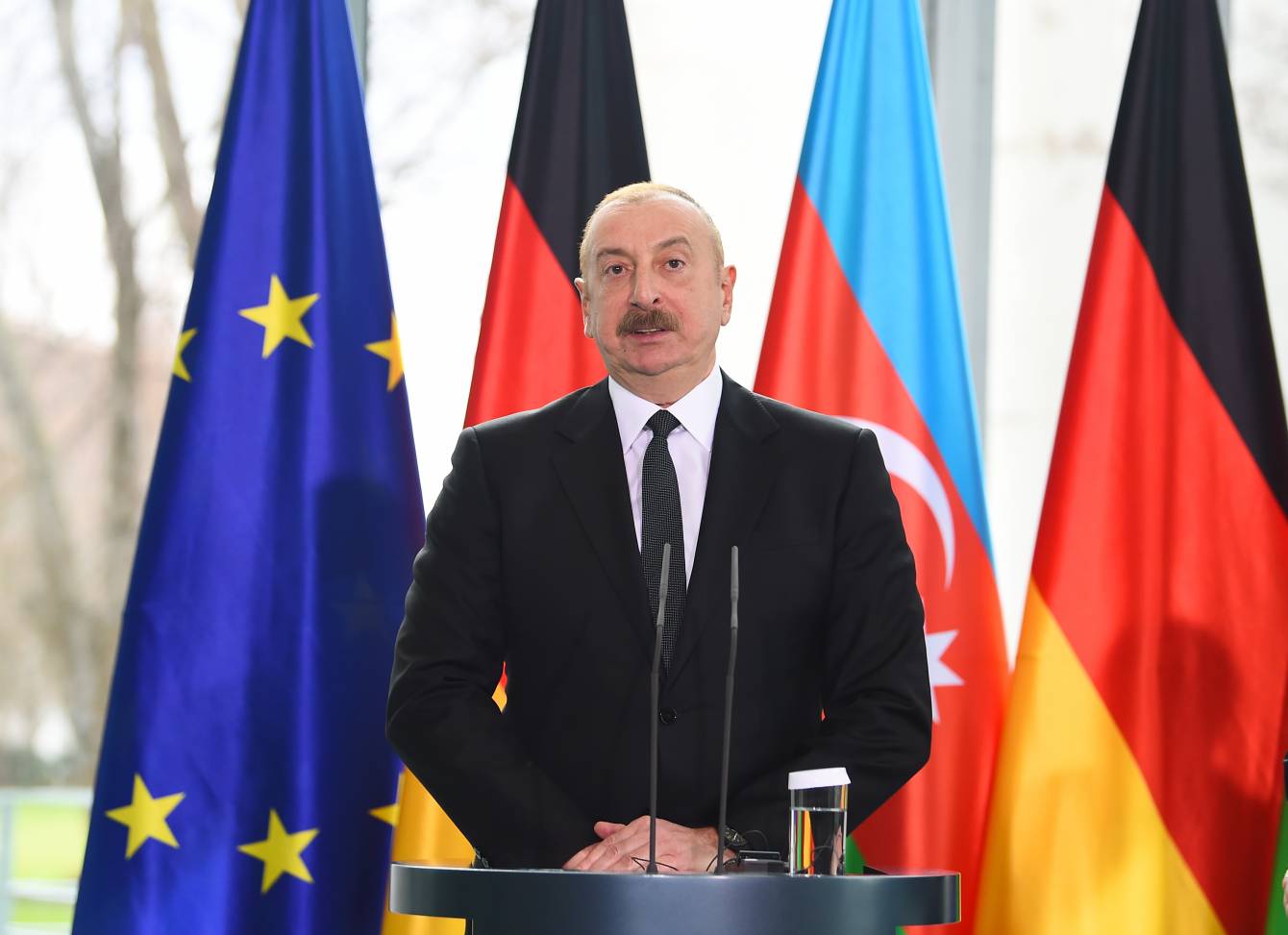
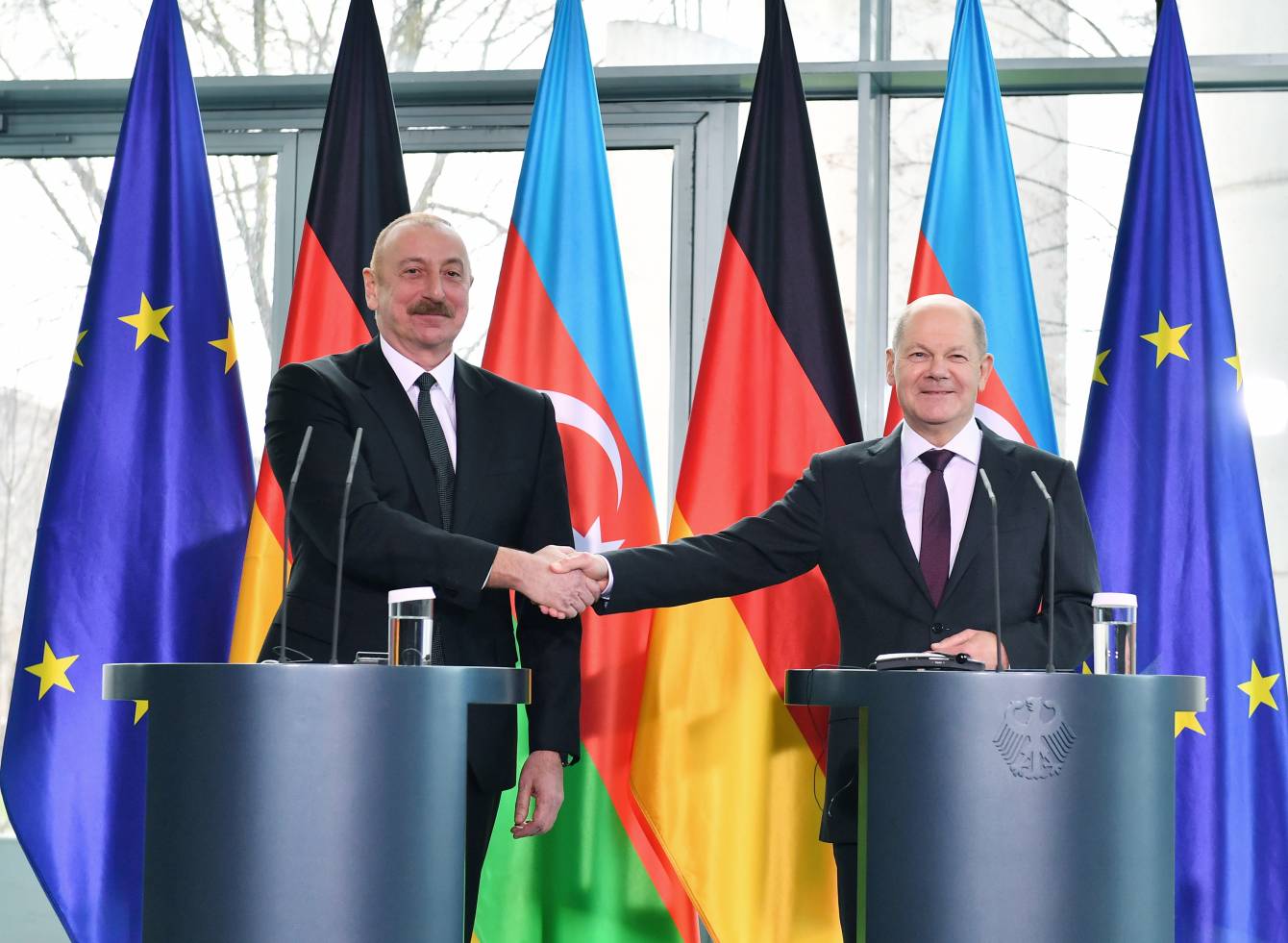

His Excellency Mr. Ilham Aliyev, President of the Republic of Azerbaijan
Excellency,
I have the immense pleasure in extending my warm greetings and sincere best wishes and those of the Government and the people of Sri Lanka to Your Excellency, the Government and the...
29 May 2025, 11:02His Excellency Mr. Ilham Aliyev, President of the Republic of Azerbaijan
Excellency,
I extend my greetings on the occasion of Independence Day.
National celebrations also offer moments to reflect on shared global challenges. The international community faces a...
28 May 2025, 21:10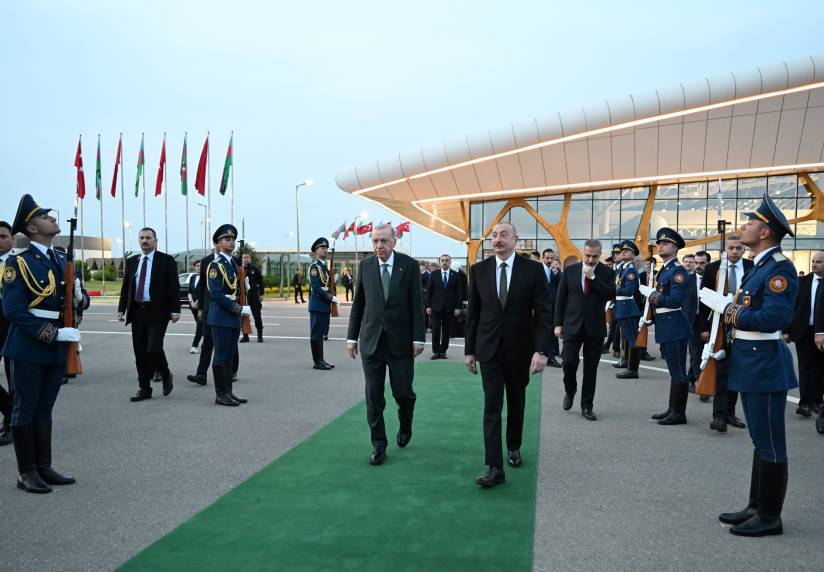
His Excellency Mr. Ilham Aliyev, President of the Republic of Azerbaijan
Excellency,
On the auspicious occasion of the celebration of the National Day of the Republic of Azerbaijan on 28 May, the Government and people of the Republic of South Africa join me in...
28 May 2025, 18:37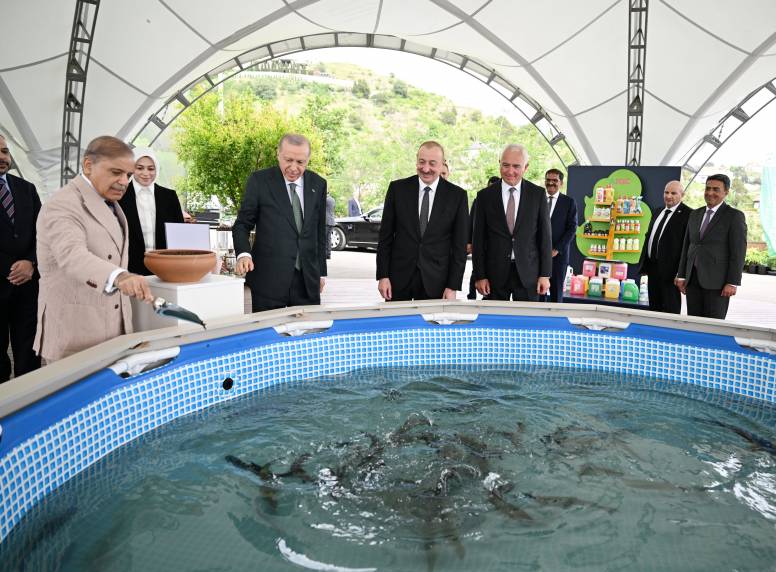
His Excellency Mr. Ilham Aliyev, President of the Republic of Azerbaijan
Dear President Aliyev,
On behalf of the American people, I want to congratulate you and the people of Azerbaijan on your Independence Day.
We value our relationship with the Republic of...
28 May 2025, 17:40His Excellency Mr. Ilham Aliyev, President of the Republic of Azerbaijan
Dear Mr. President,
On the occasion of Azerbaijan's Independence Day, I extend my warmest congratulations to you and the people of Azerbaijan. I wish your country continued progress,...
28 May 2025, 15:25His Excellency Mr. Ilham Aliyev, President of the Republic of Azerbaijan
Your Excellency,
On behalf of the International Secretariat of the Organization for Democracy and Economic Development - GUAM and me personally, I would like to extend our most sincere...
28 May 2025, 13:58